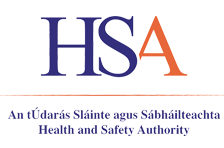Resilience
Resilience is not something anyone is born with; we learn it, through repeated exposure to challenge. We practice it, through doing some of the things that ‘worked’ and avoiding unhelpful quick fix things which only help us avoid or bury the problem. We develop resilience by adding new elements which we learn as we age such as finding soothing, calming activities to do when going through a crisis. We benefit from it because resilience allows us to handle things as they effect us without becoming overly stressed and without making those around us feel our distress. This keeps us socially and psychologically connected to loved ones and our community, rather than isolating ourselves.
As we move back towards an increasingly ‘on-site’ way of working, whether hybrid or otherwise, we will need to find novel ways to adapt to new circumstances. Resilient people have learnt to ‘make the best of’ challenges they face. As the likelihood of encountering some form of adversity increases with age, we tend to become more resilient as we get older.
Resilience theories share a common idea about people. This is that individuals who manage to navigate adversity in one area of life, are better equipped to deal with it in another. Those who have faced a crisis before, should be better equipped to self-manage a new unrelated crisis some years later. They will typically understand how they feel during a crisis, they realise what helps them, what makes it worse, and how to manage stress. These are often people who maintain high levels of functioning and who demonstrate resilience.
The main models of healthy, cognitive and emotional functioning suggest that having a high level of ability to seek solutions, see problems in context and take action to address our own reactions are positive ways of handling stress.
Daily habits to build resilience can include:
- Assessing the problem and trying to understand what it is about it that upsets you or causes anxiety.
- Looking for solutions which worked in the past and avoiding actions which you previously tried but did not bring comfort or increased strength.
- Taking some positive action, in small steps, to address the issues.
The COVID19 pandemic affected the healthy living, working and ‘being’ of all of us. It brought the resilience concept to the fore and makes it much more accessible and amenable to all. Through understanding that challenges exist, we accept that we have to both adapt to them, adopt new ways of thinking and behaviours around them, and become adept at being flexible in the face of increasing challenges.
We have personal/individual, group/social, and broader environmental resources at our disposal. Greater resilience can be fostered by using all three.
Our own wellbeing is a priority and should be the focus of our initial efforts. Quality of life is an integral component to being able to build resilience and includes:
- having enjoyment in your life,
- having challenge in your life,
- having time to learn, and
- having time to reflect.
It is also increasingly important to build resilience through social/public connections, sharing solutions to everyday work and non-work issues and accessing the relevant help and supports available.
The process of working, specifically returning to the workplace, varies widely in terms of the challenge it presents to different people. There are many different ways we all engage physically, socially and psychologically. We will function differently at different times and different stages of life, across various domains. Striving for high levels of functioning across all these many domains of life means developing resilience through learning form past experiences and avoiding doing things which don’t help towards solutions.
If you are struggling with workplace stress or anxiety you should talk to your manager or employer. You can also seek support from your local GP or medical practitioner.
Further supports are available at:
HSE’s www.YourMentalHealth.ie
Pieta House – www.pieta.ie / Freephone 1800 247 247 every day 24 hours a day / Text HELP to 51444 - standard message rates apply.
Samaritans - www.samaritans.org / Contact jo@samaritans.ie / Freephone 116 123 every day 24 hours a day
